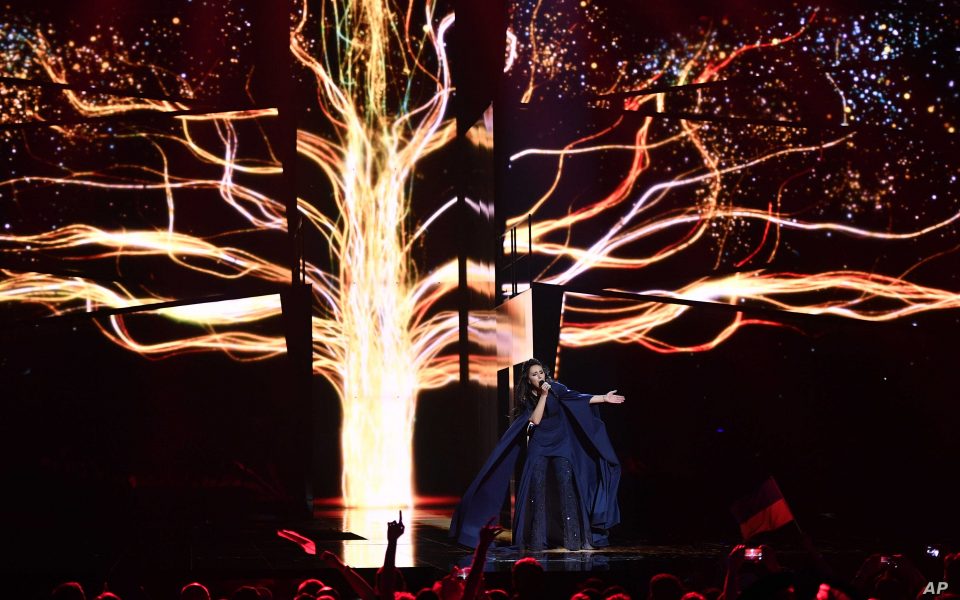The decade where Eurovision embraced its politik

After 64 years of uninterrupted presence on European TV screens, and its first unexpected hiatus due to the pandemic, the Eurovision Song Contest returns reinvigorated his week, heralding the advent of its third decade into the 21st century. Throughout those 64 years, the competition’s appeal remains timeless: a bizarre hybrid of digestible music, humor and geopolitical drama that thrills both pop lovers and political junkies.
Despite its timelessness, however, the Eurovision Song Contest is constantly evolving, reflecting the zeitgeist of the geographical puzzle that comprises it. If the 2000s showcased the rise of commercialized European folklore – as defined by the trend of the American music industry and faithfully adhered to by the triptych of ethnic pop-winners Sertab Erner, Ruslana and Helena Paparizou – the past decade has opened a new chapter in the competition’s history: the delimitation of its sociopolitical identity.
The turning point arguably came in 2012 by Laureen, a Swedish singer of Berber Moroccan origin, who won the coveted first place with the arresting dance tune “Euphoria”. The success of the song remains undeniable – “Euphoria” garnered the most “douze points” in Eurovision’s history – but Loreen featured in newspaper frontpages for different reasons. During the contest in Baku, the artist met with dozens of local Azerbaijani human rights activists, while during her victorious press conference she condemned the “daily human right violations that take place in Azerbaijan”. “It is our duty as artists to break the silence” she said. Pandora’s box was now wide open.
The winner of the 2014 contest, Conchita Wurst, soon followed suit with her proud and cinematic ballad “Rise Like a Phoenix”. The Austrian drag queen appeared on stage featuring a glittery dress and an impressive beard, sending a strong message in favor of diversity and pluralism and placing the LGBT identity at the heart of the competition – some 20 years after the first transgender winner, Dana International, took home the trophy for Israel. The socially open agenda of the competition was not, however, embraced by all participating countries. Following the victory of Conchita, Turkey – which had withdrawn from the competition since 2013 – stated that it had no intention of returning to the Eurovision stage.
Perhaps the most emblematic political undertone of the competition came in 2016. With the resurgence of the Crimea crisis in the backdrop, Ukraine enlisted Jamala and her disarming trip-hop ballad “1944” to the competition. With a chorus inspired by a Tatar folk song which the artist had heard from her great-grandmother, Jamala moved European televoters by singing about the violent deportation of Crimena Tatars that took place under Stalin’s Soviet Union in the 1940s. The reaction from Russia – which placed third by a narrow margin – was naturally far less enthusiastic. Following Jamala’s victory, top Kremlin officials rushed to label the contest “modern communication warfare” against their country.
Most recently, the hearts and minds of European viewers were captured by the exuberant Netta, the Israeli winner of the 2018 contest who competed with the feminist anthem “Toy”, in which she belittles men who treat her like a toy.
Her impact – together with that of most Eurovision winners of the past decade who amalgamated pop sensitivities with socio-political messaging – is evident in this year’s song contest. From “Zittie e Buoni” (Shut up and Behave), the Italian glam rock ode to non-conformism, to Russian entry “Russian Woman” which invites the women of the world to “break the walls” of the patriarchy, and to Greece’s own entry “Last Dance” by Stefania, whose video clip depicts Athens mired in a climate catastrophe, political narratives are abundant. Eurovision returns tonight with a banger – and in addition to folkloric costumes and pizzaz, she also proudly showcases her point of view.





